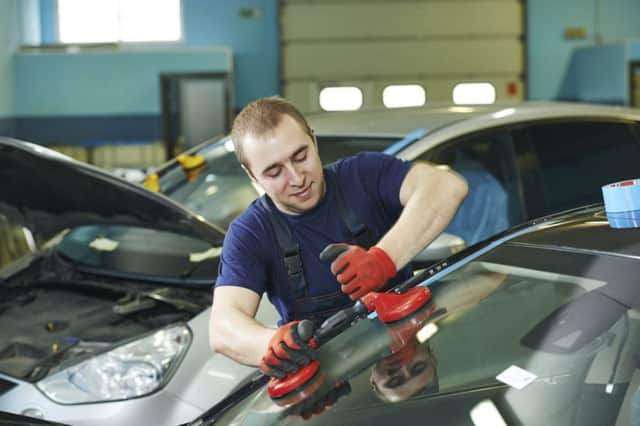Car repair costs drive motorists to risk lives


Hard-up drivers are risking their lives by continuing to travel in vehicles with cracked windscreens, bald tyres and dangerous brakes.
Others are flouting the law in cars with broken brake lights, seatbelts which do not work and missing wing mirrors.
Advertisement
Hide AdAdvertisement
Hide AdConcern about being able to afford the repair bill is the biggest reason for ignoring car faults, along with being too busy and not trusting mechanics.
The study, by car finance firm Car Loan 4U, also found one in four admits they really need to replace their car, but many would struggle to get the money together to do so.
Worryingly, 14 per cent admit they do not feel safe driving their own car, with another 17 per cent concerned about going on long journeys.
And more than one in ten said a fault they have ignored has gone on to cause an accident or near-miss.
James Wilkinson, CEO of Car Loan 4U, said: “When something starts to go wrong with your car, it can be daunting if you don’t really have the money to fix it.
“But it’s worrying to see so many are putting off fixing or replacing their car and driving around in something which might not be safe enough to be on the road.
“Cutting corners on your car safety is not advisable and even if you think you can’t afford it, there are options out there.”
The study of 2,000 drivers suggests there are 5.1 million cars on the road with bald tyres, while another 2.9 million have broken or missing wing mirrors.
Advertisement
Hide AdAdvertisement
Hide AdMore than 2.8 million cars could have at least one broken headlight, 2.4 million may have a cracked windscreen and just over two million perhaps have brakes which are not working as well as they should be.
Other common faults with cars which are being ignored include batteries which keep going flat, broken exhausts, oil leaks, broken brake lights, ignition problems, leaking radiators and issues with power steering.
But while 38 per cent of people polled are putting off getting their car fixed or replaced because it is too expensive, almost one in ten worries that other issues will show up during the work which will send the repair bill soaring.
Another 10 per cent believe their car is so rundown that it is not worth fixing, while 8 per cent think the work will cost more than the vehicle.
The study also found two-thirds would love to replace their current car with a new one if they could afford it.
These findings come despite a December 2014 consumer price inflation report citing the lower cost of fuel and second-hard cars as part of a slowdown in inflation.
Mr Wilkinson added: “One in five drivers that have come to us for help in the last month have done so because they believe their current vehicle is not roadworthy.
“In the same period, 20 per cent of the customers we have helped have undertaken a part exchange to find a more reliable vehicle.
“Ignoring a seemingly minor fault might save you money at that time, but it’s probably not going to go away by itself, and could leave you with a much bigger bill if it ends up getting worse.”